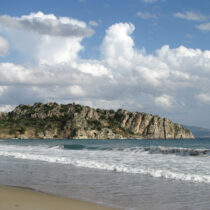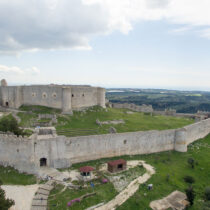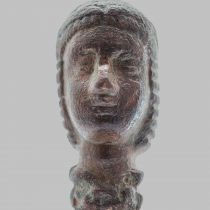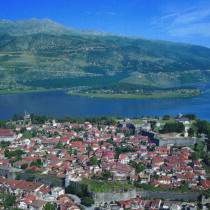Changes in Early Stone Age tool production have ‘musical’ ties
New research suggests that advances in the production of Early Stone Age tools had less to do with the evolution of language and more to do with the brain networks involved in modern piano playing.
The first conference on Public Archaeology in Greece
The first conference on Public Archaeology in Greece will take place on May 12-14, 2017 at the University of Crete.
The Impact of Alexander’s Conquest
Conference about the impact of the Macedonian conquest (338-279 BC).
Researchers identify evidence of oldest orchid fossil on record
A newly published study documents evidence of an orchid fossil trapped in Baltic amber.
Stone Age and Public Archaeology
"By specializing in Palaeolithic Archaeology, I’m essentially taking a leap, going beyond the differences and reaching our deep roots to those things that unite humans as a species".
‘Last African dinosaur’ discovered in Moroccan mine
One of the last dinosaurs living in Africa before their extinction 66 million years ago has been discovered in a phosphate mine in northern Morocco.
Ancient funerary garden discovered in Egyptian necropolis
Archaeologists in Egypt have discovered a unique ancient funerary garden on Luxor's west bank.
How migrations and other population dynamics could have shaped early human culture
Around 50,000 years ago, all of sudden, there was an explosion of new tools, art and other cultural artifacts. What caused that change?
Study could provide first clues about the social lives of extinct human relatives
A new study from The Australian National University (ANU) of the bony head-crests of male gorillas could provide some of the first clues about the social structures of our extinct human relatives, including how they chose their sexual partners.
Responding to the global movement of people – learning to live with difference
Lecture by Prof. Andrea Witcomb. The event is presented by the Hellenic National Committee of ICOM.
The Mausoleum of Emperor Augustus in Rome is finally under restoration
The mausoleum of Emperor Augustus in the centre of Rome will be restored and reopen to the public by April 2019.
Neanderthal injury patterns cannot be compared to modern ones
A comparative analysis of Neanderthal bone fractures and modern day injuries attempts to define whether we can understand how Neanderthal trauma was caused.
Three-thousand-year-old axes found in farmer’s field in mid-Norway
Some 3,000 years ago, 24 axes were cached in Stjørdal municipality, about 44 km east of Trondheim. They ’re now seeing the light of day once again.
New sauropod species described by paleontologists
Researchers from Italy and Portugal describe yet another new sauropod species from 150 million years ago, from Wyoming, USA.
Earliest relative of Brachiosaurus dinosaur found in France
Scientists have re-examined an overlooked museum fossil and discovered that it is the earliest known member of the titanosauriform family of dinosaurs.
Evolution: On mosaics and melting-pots
Genetic studies of cichlid fishes suggest that interspecies hybrids played a prominent role in their evolution.
Mycenaean chamber-tomb with impressive grave offerings located in Salamina
A Late Mycenaean chamber-tomb containing multiple human corpses with grave offerings has been recently revealed in Salamina.
A new technique makes it possible to extract the DNA from hominids preserved in sediments
According to a study in which CSIC has participated, soil sediments from 8 European archaeological sites contain Neanderthal DNA.
Scythian horse breeding unveiled
A new study published reveals the suite of traits that Scythian breeders selected to engineer the type of horse that best fit their purpose.
Humans inhabited the Americas 100,000 years earlier than it was thought
Researchers claim that prehistoric humans occupied California about 130,000 years ago-100,000 years earlier until thought so far-on the grounds of evidence found at a site in North America.
PhD Scholarships for Culture Studies, Graduate School for the Humanities
The Groningen Research Institute for the Study of Culture (ICOG) at Groningen University is inviting applications for 6 fully funded PhD positions (4 years), starting September 1, 2017.
Researchers map the evolution of dog breeds
The study highlights how the oldest dog breeds evolved or were bred to fill certain roles.
Headless dinosaur reunited with its skull, one century later
After being headless for almost a century, a dinosaur skeleton that had become a tourist attraction in Dinosaur Provincial Park was finally reconnected to its head.
Flawed forensic science may be hampering identification of human remains
Research from The Australian National University (ANU) has cast doubt on a method used in forensic science to determine whether skeletal remains are of a person who has given birth.




























